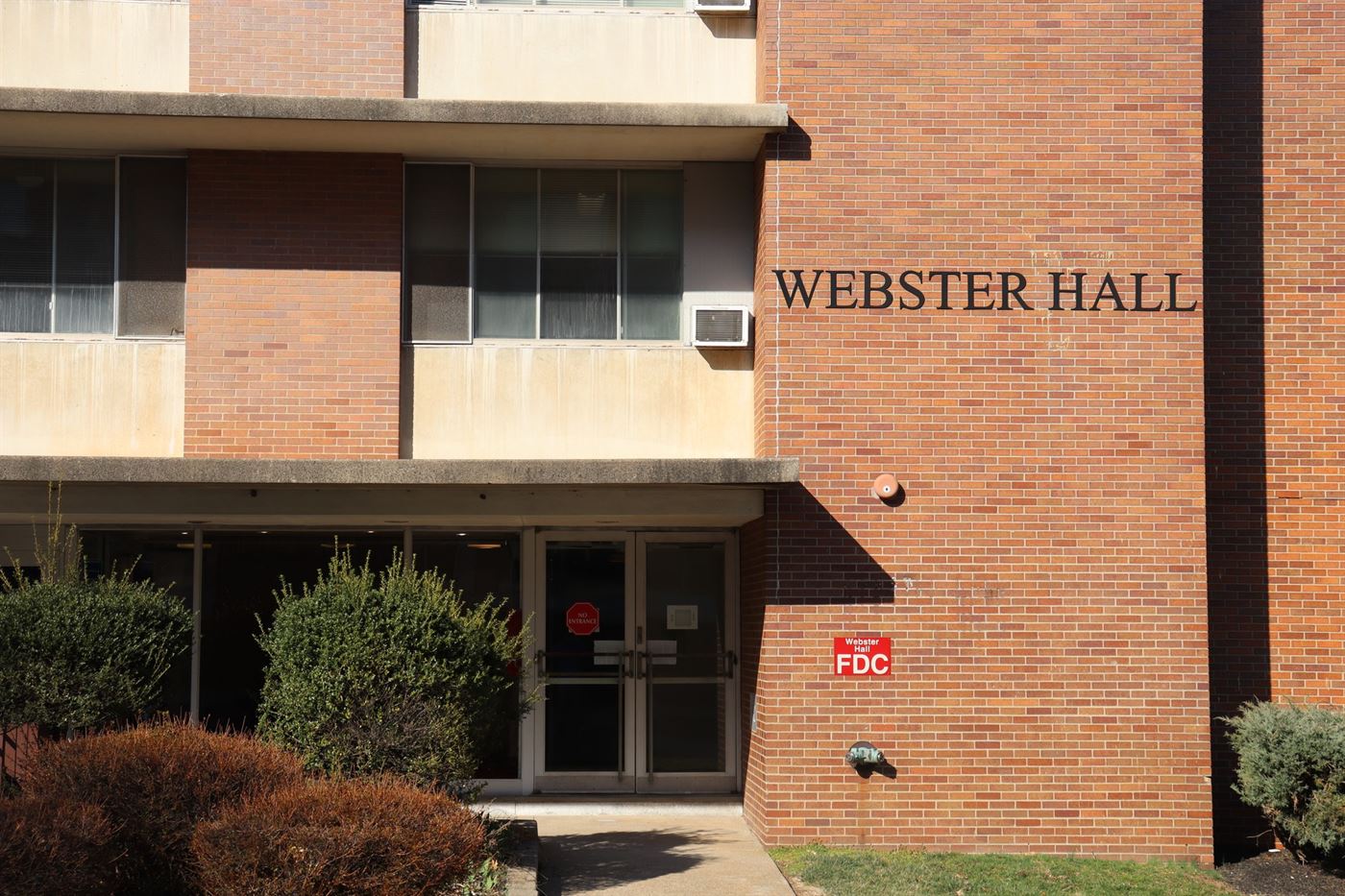More restrictions were announced to Montclair State University residential students on March 20, as Residential Life contacted students via email. The increase in restrictions comes as transmission levels rise according to unnamed university contact tracers. Up to 40 students have tested positive in the previous week, raising the total to double digits for the first time in the spring 2021 semester.
These restrictions include, but are not limited to, no visitors at all until Sunday, April 11. This also includes those who live on campus, but not in the same building and includes overnight visits. The policy of mandatory required testing every other week is still in effect, with any form of test avoidance meaning immediate removal from residential buildings for the rest of the semester.

A temperature monitor placed by the check-in counter of Dinallo Heights. This is to make sure students do not have a fever symptom of COVID-19. Students are required to have their temperature taken every time they enter the building.
John LaRosa | The Montclarion
The doubling down on restrictions comes as spring break season for colleges and universities across the country begins. Montclair State is one of many colleges opting to avoid a spring break for the spring 2021 semester to stay clear of the potential rise in cases.
Residential Life asserts that none of the cases are from classes or office visits, instead highlighting off-campus visitors in residence halls in their email as possible contaminators for students. These restrictions are no surprise to the small, but significant residential policy on campus.
For Tony Jordan, a junior marketing major who lives in Blanton Hall, the new policies are a new pain.
“To be honest, the school is punishing the rest of us [residential students] for the actions of a few and it’s annoying,” Jordan said. “Like we all get tested a lot and no we aren’t allowed to visit another dorm hall.”

Another entrance to Webster Hall, found at the start of the hallway that leads to the testing area.
John LaRosa | The Montclarion
Residents are expected to stay on campus at all times unless they sign waivers with the Office of Residence Life to leave at highly specific times and dates. While good in theory, Jordan asserts it is not completely safe.
“The school is putting their efforts into the wrong thing in order to ‘protect us’ like acting like a self-assessment that most people would lie on anyway is supposed to protect us, and then they threaten to kick us out if it’s not completed,” Jordan said.
Even on the other side of campus beyond The Heights and halls, Clove Road students are still feeling the impact. Unlike on-campus students such as Jordan, Clove Road students are not required to have meal plans. This in turn necessitates grocery shopping and off-campus travel.

An entrance to Webster Hall, where residents are required to get tested every two weeks.
John LaRosa | The Montclarion
Asa Hinson, a junior television and digital media major, lives in Hawk Crossings, one of the many residential buildings on Clove Road. Hinson agrees with the initial policies made by the school, given that they were doing what they could to ensure students were safe. Now she feels it has crossed the line.
“Although COVID-19 is a very serious matter, I feel like the school was extremely ridiculous with its new reinforced rules,” Hinson said. “No one should be getting kicked off campus for leaving as long as students are taking precautions everywhere else. You just can’t keep students hostage, it’s ridiculous.”

Many printer paper signs are found around Webster Hall to let students know where they can go to get tested.
John LaRosa | The Montclarion
The school is working to ensure that there are few venues available for mass gatherings, but as of now has not confirmed if that will be extended to classrooms and laboratories as well. They are tightening occupancy limits for dining hall venues and other indoor gathering spaces.
All students are still required to wear masks in public spaces and practice social distancing, and noninvasive temperature check stations are in every building and are a requirement to enter.
The office of Residence Life could not be reached for comment.



